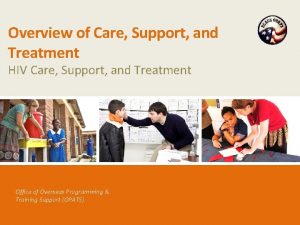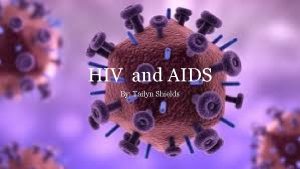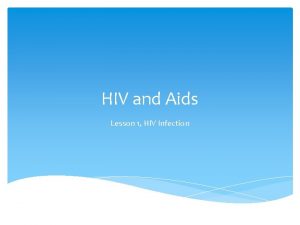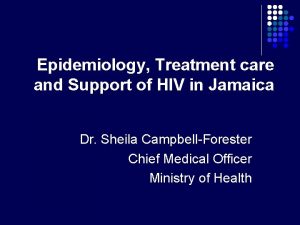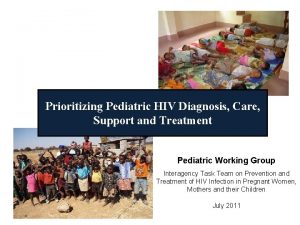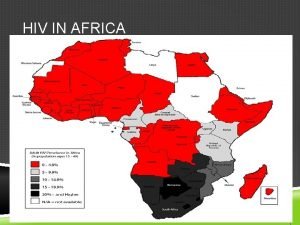Empowering Support Groups HIV Care Support and Treatment











- Slides: 11

Empowering Support Groups HIV Care, Support, and Treatment Office of Overseas Programming & Training Support (OPATS)

Definition of a Support Group of people who come together to talk about common experiences, problems, and concerns, without being judged, blamed, stigmatized, or isolated.

Support Groups and the Continuum of Care

Importance of Support Groups § Helps people face challenging and stressful situations and build a sense of community. People with similar experiences can: – Better relate – Offer more authentic empathy and validation – Give practical advice and suggestions – Share relevant and credible information

Importance of HIV Support Groups Members give and receive emotional, social, and spiritual support, which improves their physical and emotional well-being. Belonging to a support group helps PLHIV: § Develop positive strategies for living with HIV § Strengthen knowledge § Gain self-confidence § Make friends, reduce isolation § Develop a public voice, overcome barriers

The Power of Support Groups § Listen to this story that illustrates the power of support groups

Purpose of Support Groups § To improve the quality of life of PLHIV and their families and promote physical and emotional wellbeing § To empower members with information on HIV prevention, care, support, and treatment (including ARVs) and to learn from each other’s experiences § To give refuge from HIV-related stigma and discrimination, promote acceptance, and offer opportunities for collective work to address stigma and discrimination

Kinds of Support Groups § Post-test clubs § Treatment adherence groups § Discordant couples support groups § Support groups for key populations § Teen clubs § Etc.

Support Group Discussion Topics and Activities § Manage disclosure and relationships, including safer sex § Discuss topics prioritized by group members (positive living, treatment adherence, nutrition education, etc. ) § Organize activities (social, sport, celebrations) § Address issues relevant to the group

Volunteer Credibility in Working with Support Groups § As someone without HIV, you may have little credibility — vital to establish trust – Be an excellent communicator – Show a caring attitude – Ask open questions and listen – Be willing to help – Admit when you’re wrong – Do not judge others

What Makes a Successful Support Group? § § § § § Clear purpose Confidentiality Scope and limits Leadership roles, responsibilities, and structure Membership Ground rules Where and when meetings are held Planning discussion topics and activities Partnerships Self-evaluation
 How are ethnic groups and religious groups related
How are ethnic groups and religious groups related Empowering and delegating
Empowering and delegating Difference between delegation and empowerment
Difference between delegation and empowerment Types of care primary secondary tertiary
Types of care primary secondary tertiary Quotes about empowering youth
Quotes about empowering youth Empowering people in ob
Empowering people in ob Empowering people in ob
Empowering people in ob Empowering people in ob
Empowering people in ob Empowering people acer
Empowering people acer Empowering minds curriculum
Empowering minds curriculum Empowering business
Empowering business Empowering imagination
Empowering imagination













